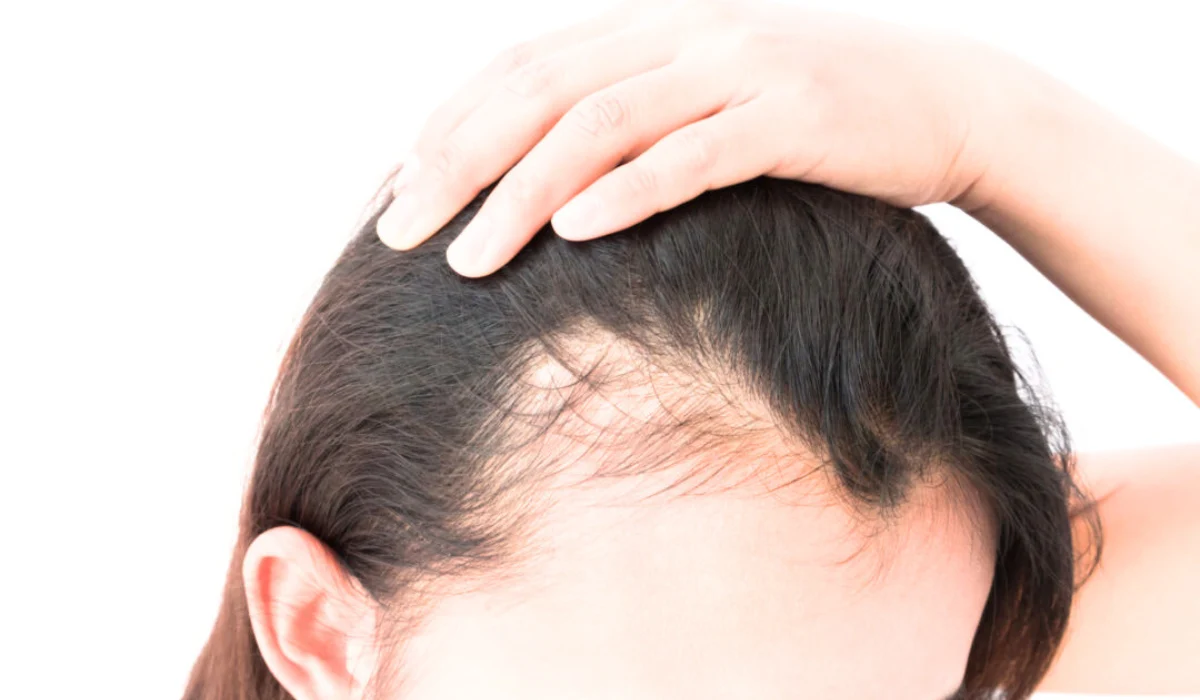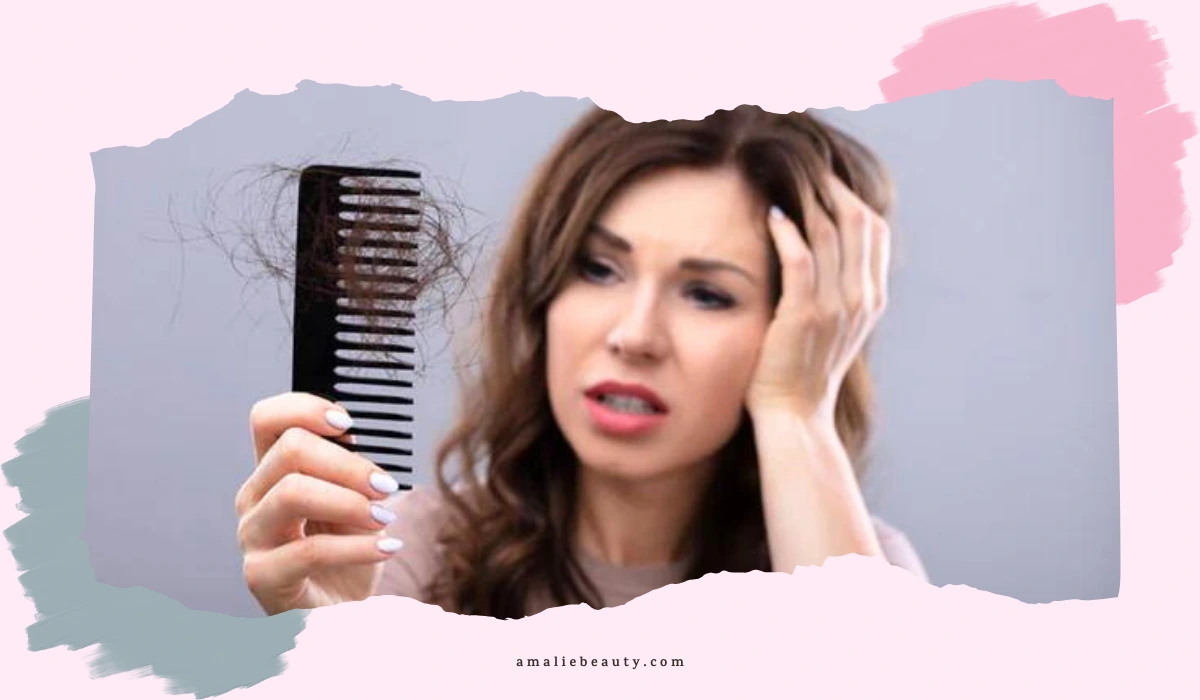Hair fall or hair loss is one of the major issues that has been around for ages and generations. No matter whether you are healthy or not, you must have gone through this concerning situation once in your lifetime, haven’t you? A lot of people are struggling with hair fall and lose up to 100 strands per day, which is said to be a part of your hair growth cycle.
Although new strands grow when you lose or shed one, you cannot leave it like that and take some measures to manage or prevent your hair from falling. To do that, you must first know the symptoms and causes behind your hair fall so that you can use the right products for the treatment.
What Are The Different Types Of Hair Loses?

Yes, of course, there are some types of hair loss because some of them are permanent while others are temporary. However, both conditions can be managed or prevented, and hair fall will either decrease or completely stop. Here are some of the most common types of hair loss that you must know.
Anagen effluvium- This type of hair is the result of medical treatments like chemotherapy, and it makes you lose your strands very rapidly.
Alopecia Areata- It is the condition when you lose your hair not only from your head but also from the body because of an autoimmune disease.
Androgenic Alopecia- This type of hair loss is carried from one generation to another and is also known as hereditary baldness. This type of hair loss can occur in both males and females, but the only difference is that men get bald, and women lose a lot of hair.
Telogen Effluvium- When you witness a lot of shredding within a very short period, then you must know that you have this condition. This usually happens when you go through something that is both physically and emotionally stressful and also because of sudden hormonal changes.
Factors That Causes Hair Loss
- Polycystic ovary syndrome, or PCOS, is one of the major causes that contribute to the occurrence of hair falls in women. This is because the body goes through a sudden hormonal change during pregnancy, childbirth, and menopause. Although these are some temporary reasons that can cause an imbalance in hormone secretion and production, the effects on hair loss can be permanent.
- When you inherit genes from your parents that stop or shrink the growth of your hair, then it is termed genetic hair loss. You may not lose your hair immediately, but you will slowly see a decrease in the amount of hair on your head. This can happen to both men and women because hair fall is not limited to any gender, age, or person.
- The growing of fungi or having a fungal infection can also be one of the potential reasons behind the loss of your hair. This mainly happens because of your laziness in keeping your scalp and hair clean.
- Chemotherapy and some other medications also make the roots of your hair weaker, and that eventually leads to hair loss. If you remove all your hair in such cases, then they may grow back longer again with time.
- If you have been stressed because of various life events, such as your work, relationship, breakup, marriage, or surgery, then you can also go through hair fall conditions. The more stress you take, the more strands of hair you’ll lose.
- The use of too many chemical products and tightly pulled hairstyles can also damage the roots and strands of hair and make them fall. If you tie your hair too tight, braid, bleach, perm, straighten, or curl it too frequently, then you may experience hair loss temporarily.
- When your body is deficient in iron, protein, and fiber, then you may have a lot of hair loss and may get irritated with it. So, nutrition deficiency can be one of the potential causes of hair loss and natural baldness.
How Can I Know The Signs Of Hair Loss?
It is very easy to determine the signs of hair loss because the changes that happen in your body and head are very significant to be noticed. One of the main signs is that you will see hair strands in your comb and the areas where you comb.
Also, if you are a man, then you will see your hairline declining, and the baldness starts showing up. Small patches of scalp, thinning of hair at the crown, and falling of body hair are also some common signs and symptoms that tell you about the hair loss issue.
Can Hair Loss Be Treated? If Yes, How?
Yes, hair loss can be treated by implementing some natural and commercial remedies as per your choice. There are several natural ingredients, such as Amla, onion oil, green tea, fenugreek, aloe vera, and others, which can be used to make a paste that promotes hair growth. Other than that, you can also use some anti-hair fall shampoos, hair oils, and masks and leverage their benefits.
Along with the application of these natural and commercial products, you must make sure that you indulge in a proper and nutritious diet. You need vitamins, proteins, iron, and fiber for your hair to grow, so you must consume food items that are rich in these nutrients. If none of these remedies work and you continue to have hair loss, then you must visit the dermatologist and get instructions to deal with the situation. It is most likely that he will recommend some vitamin supplements to you that stop hair fall and promote its growth.
Conclusion
No matter whether you are a child, adult, or old, hair fall can be your concern, as you might start losing the strands at any stage of your life. Now you know that there are different types of hair loss, their cause, and some effective treatments that can help you to manage the hair loss effectively.
You can try all the natural and commercial remedies to prevent your hair from falling, but if they do not work on you, then you must consider visiting a dermatologist for consultation.
References:

